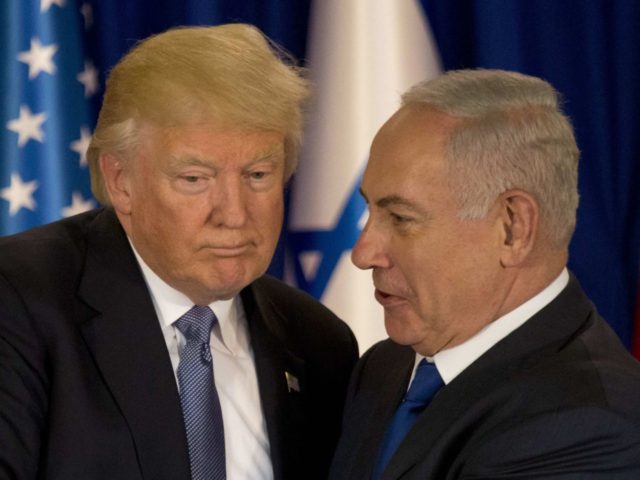The horrific Manchester terror attack on Monday night came in the midst of President Donald Trump’s visit to Israel, just hours after he dined with Prime Minister Benjamin Netanyahu.
It was a timely, if grim, reminder that Israel and the United States lead the fight against a common terrorist enemy, Beyond shared morals and shared democratic values, the shared challenge the two countries share has bound them closer since September 11, 2001.
For decades, Jews, and Israelis in particular, were the primary targets of radical Islamic terrorism. The world saw that as the result of the enduring Arab-Israeli conflict, with the Soviet Union backing Palestinian ambitions.
After the Cold War and after the 1993 Oslo Peace Accords, many saw radical Islamic terrorism as an unfortunate part of the peace process — an almost natural effort by extremists to disrupt negotiations, as they had in other cases.
Then, in 2000, after Palestinian leader Yasser Arafat walked away from generous peace terms at Camp David, the Palestinians launched the second intifada, a brutal campaign of suicide bombings and mass shootings.
It became clear to Israelis, and to many of Israel’s friends abroad, that terrorism was motivated by its own internal madness, by a radical Islamist ideology that could not be pacified by negotiations or jobs. It was a self-generated form of evil.
For a year, the world largely ignored Israeli pleas, and treated the intifada as if it were somehow Israel’s fault. Then 9/11 happened, and Americans understood we had been attacked because of who we were, not because of anything we had done.
Israelis and American ideas about terror began to coalesce — a process that was accelerated by the resurgent anti-Americanism of the European left, which often used traditional antisemitic tropes to attack America.
Then terror came to Europe, rewarding domestic policies of welfare-state multiculturalism and foreign policies of appeasement with brutal violence. And terror spread throughout the Arab and Islamic world, too, forcing the leaders of Muslim countries to confront a threat they had once happily cultivated.
That realization led to the conference the president addressed on Monday, and to what Trump described in Israel on Monday as a new will for peace throughout the region.
The good news is that after an eight-year detour, during which the last administration tried to deny terror’s radical Islamic roots, Israel and the United States are united again, grounded in the same reality. And there are new allies willing to join the fight, thanks to the threat of Iran, the world’s foremost state sponsor of terror.
The awful tragedy is the terrible cost that the world has paid along the way. Today, we fight together again because we mourn as one.
Joel B. Pollak is Senior Editor-at-Large at Breitbart News. He was named one of the “most influential” people in news media in 2016. He is the co-author of How Trump Won: The Inside Story of a Revolution, is available from Regnery. Follow him on Twitter at @joelpollak.

COMMENTS
Please let us know if you're having issues with commenting.